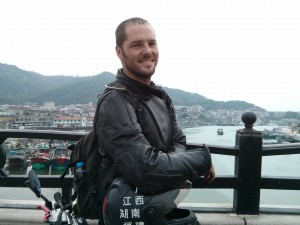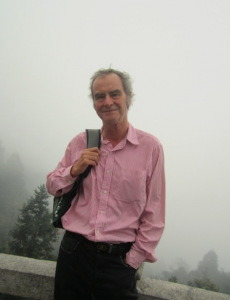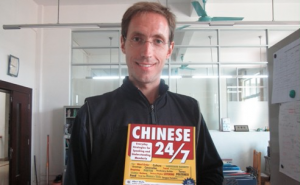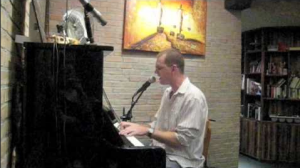PRD People: Musician and Expat Website Troll The Fred Fong
Posted: 09/5/2014 5:46 pmSince January when the Nanfang posted his song “Super English Teacher,” The Fred (who also posts under the name of “Fred Fong”) has been one the best known trolls in the China-watching blogosphere. He is mostly known for his cheeky songs that rag on aspects of life in China (mostly foreign English teachers) and his provocative comments on websites such as Shanghaiist, Chinasmack and the Asia Stuff Media websites where he has been a fixture for years.
He has kindly taken the time to talk to The Nanfang about his career in business, life as a musician in China, why he considers himself superior to English teachers and how he is a “compulsive masturbator.”
The Nanfang: You are a regular in the comments sections of most major English-language websites that focus on China, known as both The Fred and The Fred Fong. You are quite a mysterious man, tell us about yourself.
The Fred: I’ve been coming to China since 1995 and find it fascinating. I’m very inquisitive about Chinese culture and history. Since selling my business in America in 2006, I’ve lived full time in China.
Having a challenge in life is important to me and trying to understand the Chinese puzzle is a challenge because several of the pieces are missing. I’ve started a couple of businesses here and recently sold one of them. I’ve always been self-employed and enjoy a challenge. Now I can relax a bit and write music until another opportunity comes along.
The Nanfang: You’re a long-term China expat, what’s Shenzhen got going for it?
The Fred: I travel between Shenzhen and Shanghai. All cities have their advantages and disadvantages. I’m comfortable and can enjoy myself wherever I happen to be at the time.
The Nanfang: Is Shenzhen’s live music scene any good? If not, why do you choose to live there?
The Fred: I play live music throughout China and the biggest problems is finding capable musicians to write and collaborate with. The other problem is finding venues that encourage original music.
I enjoy playing improvisational jazz/rock or “world” music as some people call it. A majority of the foreigners that come to China that are musicians aren’t very talented and can only play cover/copy music. A majority of Chinese don’t have any sense of rhythm and can’t play impov music because it means you must play spontaneous and creatively in an unstructered yet structured format.
Improvisation is the most satisfying form of live music and when you have capable musicians communicating and interacting together it becomes magical and very satisfying.
The Nanfang: You are something of a China basher in many of your comments.
The Fred: There is no “good or bad” place to live in my opinion. I can adapt to just about any environment, but China is stimulating. China inspires and confuses me daily and I’m pushed to respond to life experiences in some type of expressive way. If people find my comments offensive I apologize. My comments are made for the purpose of provoking thought and debate. Same with my music. Cover-band music and boring comments are not my cup of tea
The Nanfang: You have at least four songs that bash English teachers. Are they the real villains of today’s society?
The Fred: Not really villains, just easy targets. It’s the only group I can insult and joke about without being accused of being a racist or hating women. Its fun to laugh at those that are low on the social and mental spectrum.
The Nanfang: You repeatedly mock English teachers as not being very clean living (e.g. frequenting brothels), are you superior on this count?
The Fred: Yes…I am superior to your average foreign English teacher in China. Generally speaking, most non-English teachers are far superior to your average unqualified, low IQ foreign English teacher that stumbled into China.
The Nanfang: Do you intend to turn your attention to some other things in China that ought to be satirized?
The Fred: I’m a fan of common sense and when I see irony or a lack of common sense my mind takes note and before I know it a song is written. I can’t write about love or little apples. Common things are quickly deleted from my thoughts. My Songs about English teachers also subtly comment on how Chinese are willing to pay a foreigner that has never taught before a salary far higher than what a qualified Chinese person would get. Chinese not respecting their fellow Chinese is very disturbing to me and it manifests itself through the English teacher scenario…kapow! A new song is written.
The Nanfang: Some of your most popular songs are just flat out silly rather than satirical (“Big Chinese Dick”, “Boycott Bukkake”, etc…). Are you at heart an angry social critic or just an impish jokester?
The Fred: I’m willing to admit something that most artists aren’t willing to admit. I’m a compulsive masturbator…in an artistic sense. I write and record music and make videos for my own selfish enjoyment. For whatever reason…I guess…I’m a big jackoff…and no one can stop me.
The Fred’s latest song, “English Teacher Autopsy”, can be heard here.
















